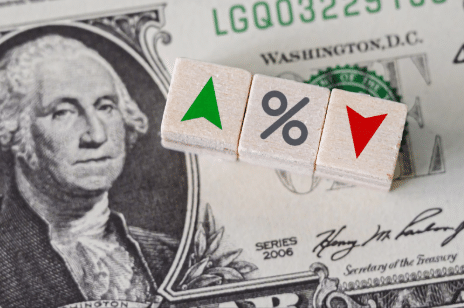
Ill-Prepared For Pandemic Bills: 39 States Are Lacking Cash
EDITOR NOTE: By the end of 2019, months before the pandemic infected the US economy, 78% of all US states were unable to pay their bills. The total debt (all states included) stood at $1.4 trillion. And then, the coronavirus crisis hit, plunging even the most financially-sound states toward losses in billions. As for the rest, many are asking the American taxpayer, via the federal government, to bail them out. Unable to pay their bills before the crisis, how many of these states face the risk of insolvency amid the ongoing pandemic? Chances are, that won’t happen. The claim on Americans’ future wages is set. America, as a country, is not going bust, nominally speaking. But the future wealth of the average American is about to be sacrificed for the greater good of the country, or at least, its "image" of integrity and robustness.
At least 39 states did not have enough money to pay all of their bills at the end of 2019, leaving them ill-prepared to shoulder the costs of the novel coronavirus pandemic, according to a new report.
The report, from Truth in Accounting, a think tank that analyzes government financial reporting, found the majority of states aren’t financially ready for any crisis, especially one as serious as the one they are currently facing from the COVID-19 pandemic. The group’s 11th annual "Financial State of the States" report analyzed the states' audited Comprehensive Annual Financial Reports for fiscal year 2019, which is the latest available data. It found that total debt among the 50 states amounted to $1.4 trillion at the end of the fiscal year 2019, which will only worsen as states cope with the unpredictable impacts of the pandemic.
However, 11 states had some money put aside at the start of the pandemic. But even the healthiest states are projected to lose billions of dollars in revenue as a result of the coronavirus pandemic. The 50 states together are projected to lose a combined $397 billion in revenue, according to estimates from Truth in Accounting. The uncertainty surrounding the pandemic makes it difficult to determine how much will be needed to maintain government services and benefits, but overall debt levels for many states are expected to increase.
The new report comes as the federal government is considering additional aid for the states, although Republicans and Democrats in Congress remain at odds over providing additional aid to states and cities, even in an election year.
These governments that were being reckless with their budgets were saying, ‘Oh, we’re balancing our budgets,’ and we were saying no, they’re not balancing their budgets, and nobody paid attention,” said Truth in Accounting CEO Sheila Weinberg. “Well, now that they’re in trouble they’re going to all the taxpayers of the United States wanting money. Everybody does need to pay attention to what’s going on. All these state and local governments are coming to the federal government and wanting a bailout.”
She especially blamed states like New Jersey and Illinois for their budgeting gimmicks, which landed them at the bottom of the list. On the other hand, she credited Alaska and North Dakota, which are at the top of the list, having set aside money in their budgets, although both states have been deeply affected by the plunge in oil prices this year.
The full 50 state ranking is below:
Alaska | Taxpayer Surplus: $77,400
North Dakota | Taxpayer Surplus: $37,700
Wyoming | Taxpayer Surplus: $19,600
Utah | Taxpayer Surplus: $5,500
Tennessee | Taxpayer Surplus: $3,400
South Dakota | Taxpayer Surplus: $3,300
Nebraska | Taxpayer Surplus: $2,800
Idaho | Taxpayer Surplus: $2,800
Oregon | Taxpayer Surplus: $2,600
Iowa | Taxpayer Surplus: $1,500
Minnesota | Taxpayer Surplus: $100
Oklahoma | Taxpayer Burden: -$700
Virginia | Taxpayer Burden: -$800
Indiana | Taxpayer Burden: -$1,300
North Carolina | Taxpayer Burden: -$1,400
Florida | Taxpayer Burden: -$1,600
Arkansas | Taxpayer Burden: -$1,700
Arizona | Taxpayer Burden: -$1,700
Montana | Taxpayer Burden: -$2,000
Colorado | Taxpayer Burden: -$2,600
Nevada | Taxpayer Burden: -$2,600
Georgia | Taxpayer Burden: -$2,900
Wisconsin | Taxpayer Burden: -$3,100
New Hampshire | Taxpayer Burden: -$3,900
Missouri | Taxpayer Burden: -$4,300
Ohio | Taxpayer Burden: -$5,800
Washington | Taxpayer Burden: -$6,100
Kansas | Taxpayer Burden: -$6,200
West Virginia | Taxpayer Burden: -$6,300
Maine | Taxpayer Burden: -$6,700
New Mexico | Taxpayer Burden: -$7,500
Alabama | Taxpayer Burden: -$7,600
Mississippi | Taxpayer Burden: -$10,400
Texas | Taxpayer Burden: -$11,300
South Carolina | Taxpayer Burden: -$13,400
Rhode Island | Taxpayer Burden: -$14,700
Maryland | Taxpayer Burden: -$15,200
Pennsylvania | Taxpayer Burden: -$16,400
Michigan | Taxpayer Burden: -$17,000
Louisiana | Taxpayer Burden: -$17,100
New York | Taxpayer Burden: -$17,200
Vermont | Taxpayer Burden: -$18,900
California* | Taxpayer Burden: -$21,100
Kentucky | Taxpayer Burden: -$24,700
Delaware | Taxpayer Burden: -$24,900
Massachusetts | Taxpayer Burden: -$30,100
Hawaii | Taxpayer Burden: -$31,700
Connecticut | Taxpayer Burden: -$50,700
Illinois | Taxpayer Burden: -$52,000
New Jersey | Taxpayer Burden: -$57,900
Originally posted on Accounting Today
The financial market is crumbling and EVERYONE will be affected. Only those who know what's going on and PREPARE will survive... dare we say thrive. Our 7 Simple Action Items to Protect Your Bank Account will give you the tools you need to make informed decisions to protect yourself and the ones you love.











